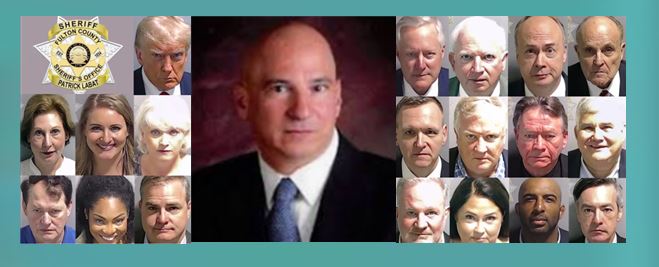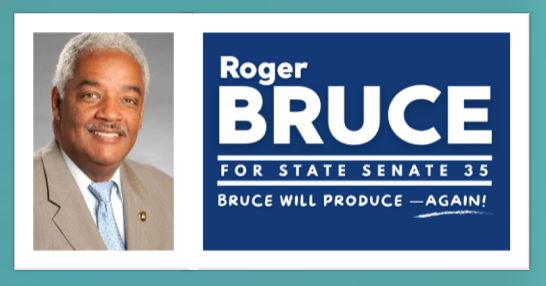Prosecutor Takes Helm of Georgia Case Against Trump — Even as Trump Issues 18 Pardons That Don’t Touch State Charges
Share

In a dramatic turn in Georgia’s long-running 2020 election interference saga, the state’s Prosecuting Attorneys’ Council director Pete Skandalakis has appointed himself – formally taken control of the criminal case against former President Donald Trump—just as Trump issued preemptive pardons to 18 of his co-defendants in a sweeping federal gesture that carries no legal force over.
Georgia’s long-running 2020 election interference case entered a new and uncertain phase this week as Pete Skandalakis, the head of the Georgia Prosecuting Attorneys’ Council (PAC), formally assumed control of the prosecution. The move came after months of legal turbulence surrounding Fulton County District Attorney Fani Willis, who was disqualified from continuing the case after a judge ruled her past relationship with special prosecutor Nathan Wade created an appearance of impropriety.
Skandalakis’ takeover is raising as many questions as it answers — intensified by a startling new development on the national stage: former President Donald Trump has issued preemptive pardons to 18 of his Georgia co-defendants, a dramatic political maneuver with zero impact on the state criminal charges they still face.
The collision of these two developments — a new prosecutor who has signaled skepticism about the case, and a former president issuing strategically timed pardons — has cast new uncertainty over whether the sprawling election racketeering prosecution will move forward at all.
Skandalakis Takes Over — After No One Else Would
Skandalakis announced last week that after canvassing district attorneys across the state, he was unable to find a single prosecutor willing to inherit the massive case from Willis. As a result, under Georgia law, the responsibility defaulted to him.
The challenge before him is enormous. The indictment — one of the most sweeping in Georgia history — accuses Trump and 18 allies of participating in a coordinated conspiracy to overturn the state’s 2020 election results. It spans alleged fake electors, pressure campaigns on state officials, breaches of voting systems, and a multi-state racketeering theory.
But Skandalakis has repeatedly voiced doubts about parts of the case, telling reporters earlier this year that he was “not convinced” every element met the threshold for criminal prosecution and stressing that political speech, even irresponsible speech, is often protected.
His previous public comments have fueled speculation that he may scale back the indictment, dismiss charges, or even decline to prosecute Trump altogether — something that would ignite a political firestorm in Georgia and nationally.
Trump Issues 18 Pardons — But They Don’t Touch the Georgia Case
Complicating the landscape further, Trump issued preemptive federal pardons to 18 of his Georgia co-defendants, a move widely seen as both political messaging and legal positioning ahead of the 2026 presidential race.
The pardons are sweeping in tone, describing the individuals as “patriots” who were “persecuted for questioning a fraudulent election.”
But they are also legally meaningless in the Georgia case.
Because the charges against Trump and his co-defendants were brought under state law, a federal pardon cannot erase, shield, or block any state criminal liability. Only the Georgia State Board of Pardons and Paroles — not the governor — can issue pardons for Georgia offenses, and not until five years after completion of a sentence.

Legal experts say the pardons function primarily as political theater:
They signal Trump’s loyalty to allies.
They paint the Georgia case as politically motivated.
They attempt to frame co-defendants as victims rather than participants in an alleged scheme.
But they do nothing to stop the prosecution — unless Skandalakis chooses not to move forward.
Will the Case Continue? Georgia Waits on Skandalakis
With Trump’s pardons shifting political winds and Skandalakis now in charge, all eyes are on whether he will:

- Pursue the full racketeering indictment,
- Narrow the charges,
- Split defendants,
- Seek plea agreements, or
- Dismiss some or all charges outright.
Political pressure is immense — from Trump supporters insisting the case is illegitimate, to Georgia officials who insist the state must protect the integrity of its election system. Skandalakis has insisted he will make decisions “without fear or favor,” but his earlier skepticism leaves many uncertain about how aggressively the case will proceed.
A Case at a Crossroads
The Georgia prosecution remains the only criminal case in the country directly alleging a coordinated plot to overturn the 2020 election. It is uniquely insulated from presidential power: Trump cannot pardon himself or anyone else if the state finds them guilty.
But with a new prosecutor who did not seek the case, a politically charged wave of Trump pardons, and a complex conspiracy indictment now in limbo, the future of the prosecution is more unclear than ever.
Georgia is once again at the center of America’s most explosive legal and political battle — and the next move belongs to Pete Skandalakis.



